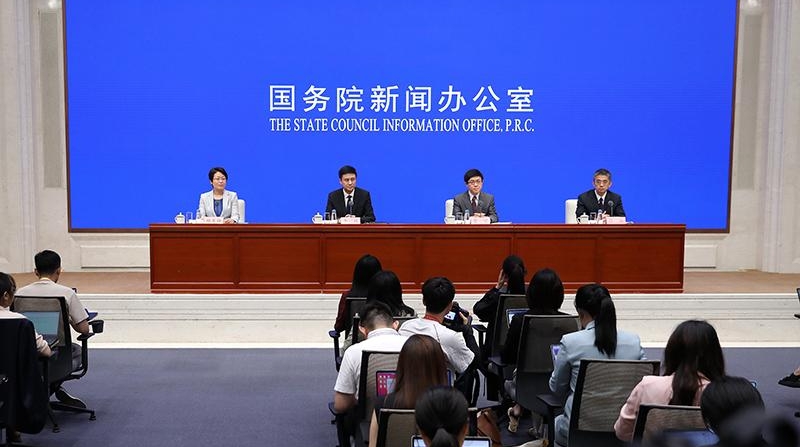National Business Daily:
In the first half of the year, foreign investors increased their purchases of RMB-denominated bonds and stocks. Could you please share more information on this? In addition, what is your outlook on the future trend of foreign investment in RMB assets? Thank you.
Jia Ning:
Thank you for your questions. Let me first give a brief overview of recent developments regarding foreign investment in RMB-denominated stocks and bonds. Since the beginning of 2025, foreign investors' overall allocation to RMB-denominated assets has remained relatively stable. The scale of foreign investment in RMB bonds has increased, with foreign investors now holding more than $600 billion worth of onshore RMB bonds, which is close to a historical high. Meanwhile, foreign investment in the domestic stock market has overall been improving. In the first half of this year, foreign investors purchased a net total of $10.1 billion in domestic stocks and funds, reversing the net selling trend seen over the past two years. In May and June in particular, the scale of net purchases increased to $18.8 billion, indicating a strengthened global willingness to allocate capital to the domestic stock market.
According to our assessment, there remains stable and sustainable growth potential for foreign investment in RMB assets in the future. Currently, foreign investors hold approximately 3% to 4% of the market value of onshore bonds and stocks. Supported by multiple positive factors, foreign investment in RMB assets is expected to continue increasing gradually.
First, China's sound economic fundamentals have created a stable macro environment for foreign investment. As the effects of policies to expand domestic demand continue to emerge, the steady and positive momentum of the economy is expected to be further consolidated. Recently, several major international investment banks have expressed optimism about China's development prospects and have upgraded their ratings on Chinese assets from neutral to overweight.
Second, the high-quality development of China's financial markets has created a favorable policy environment for foreign investment. China remains committed to high-standard opening up, continuously improving the mechanisms for financial market connectivity, expanding investment channels, and optimizing the investment environment. These efforts have made it significantly more convenient for foreign investors to participate in China's financial markets. Meanwhile, China has built a relatively complete and deep financial market system. The market capitalization of both its bond and stock markets ranks second in the world. With a wide variety of financial products and strong liquidity, China offers foreign investors diversified options for RMB asset allocation.
Third, the growing global demand for diversified asset allocation has created new development opportunities for foreign investment in China. In recent years, international financial markets have experienced increased volatility, and investors generally believe that more diversified and dispersed asset allocation is needed on a global scale. The value of the RMB has remained stable, and RMB assets have demonstrated relatively independent performance in terms of returns. They have become an important choice for global investors seeking to diversify risk and enhance returns. A recent survey conducted by the Official Monetary and Financial Institutions Forum (OMFIF) of 75 central banks worldwide found that 30% plan to increase their allocation in RMB assets.
Overall, as China continues to advance financial reform and opening up, its domestic financial markets will become more integrated into the global financial system, and RMB assets will become increasingly attractive. Thank you.


 Share:
Share: 




 京公网安备 11010802027341号
京公网安备 11010802027341号